Electrophoresis
Electrophoresis is an analytical method in which a controlled electric current is used to separate biomolecules according to their size to the electric charge ratio, using a gelatinous matrix as a base.
This technique has a variety of practical uses, such as forensic medicine for human identification, the human genome project, genetic and protein mutation research, and clinical diagnostic testing.
Electrophoresis is performed with equipment made up of a negative charge at one end and a positive charge at the other, called an electrophoresis system. When inserting charged molecules, in this environment, the negative ones will go to one extreme and the positive ones to the other corresponding.
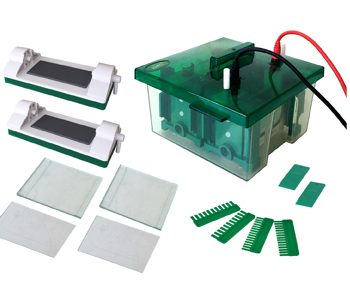
Types of Electrophoresis a Laboratory May Need
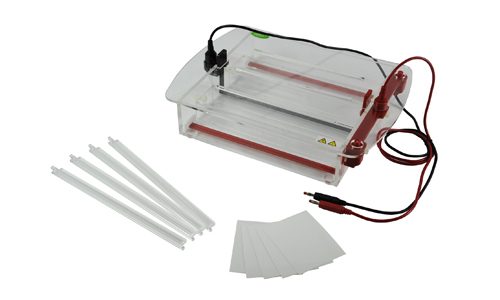
Horizontal
Classification and differential diagnosis of monoclonal gamma myopathy are based on clinical, biologic, and radiologic standards but is still difficult in some cases. Multiple myeloma (MM) is the most common malignant gamma mastopathy with a wide repertoire of signs and symptoms. Over the past 10 years, treatment options for patients with MM have expanded significantly. Along with improvements in supportive care, these new therapies significantly prolong survival in young and older patients. However, if multiple myeloma is suspected, several procedures ensure the diagnosis; the most important tests include:
- Blood and urine tests. They are examined for the presence of a specific protein (paraprotein) produced by malignantly growing plasma cells
- Imaging procedures such as computed tomography (CT) and magnetic resonance imaging (MRI)
- Examination of bone marrow samples from the iliac crest (tumor biopsy)
Vertical
The importance of electrophoresis in many aspects is remarkable, but especially in the area of medicine. Since it is useful to compare samples of a healthy individual with those of a sick patient, allowing identifying nucleic acids of infectious agents; opening the way to the diagnosis of various diseases, and thus being able to treat the individual with the condition with the correct medication.
There are two types of electrophoresis chambers; the horizontal chamber where DNA and RNA are generally processed, this one has its positive pole at one end; and the vertical chamber where proteins and DNA are worked, which has the positive pole at its lower end. In both types of cameras, the negative pole can be distinguished from the positive pole, thanks to the difference in colors, since the positive pole is identified in red and the negative in black.

In Kalstein you can find the ideal electrophoresis for your laboratory

Horizontal Electrophoresis YR03422
YR horizontal gel electrophoresis units have been designed by scientists with the laboratory environment...
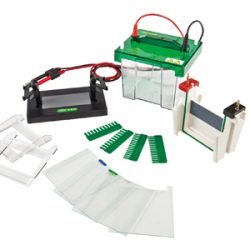
Mini-Protean Vertical Electrophoresis
Vertical gel electrophoresis is a more complex set-up compared to horizontal gel system. Researchers normally...
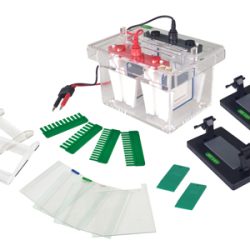
Electrophoresis Cell YR03426
Vertical gel electrophoresis is a more complex set-up compared to horizontal gel system. Researchers normally use this system to separate proteins instead ...
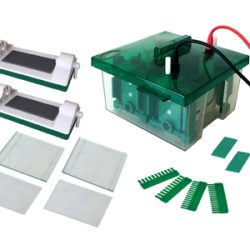
Vertical Electrophoresis Cell YR03427
Vertical gel electrophoresis is a more complex set-up compared to horizontal gel system. Researchers normally...
Our Best Selling Electrophoresis
YR horizontal gel electrophoresis units have been designed by scientists with the laboratory environment in mind. Our YR Horizontal Electrophoresis tanks provide an easy to use and flexible platform for all your horizontal electrophoresis requirements. With a wide range of tanks and tray sizes as well as many comb options, these systems can handle all manner of electrophoresis experiments. Our YR series of Horizontal Gel Units offers the most versatile solution for DNA and RNA agarose gel electrophoresis currently on the market. These model offer an unsurpassed combination of gel and buffer volume, with gel size and sample number versatility.
| Model | YR03421 |
| Gel Size(W×L) | 245×250mm. |
| Sample volume | 19~364 |
| Buffer Volume | ~2000ml. |
| Dimension | (L×W×H):487×300×93(mm) |
| Net weight | 3.8(kg) |
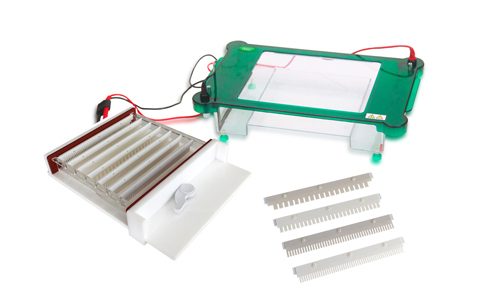
Analysis of the best Electrophoresis for your laboratory
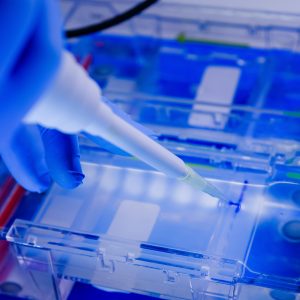
Electrophoresis Power Sources: How does it work?
A power source for electrophoresis is the source that manages constant and direct current to the electrophoresis...
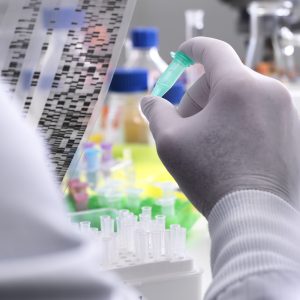
Electrophoresis Run Power Sources
Electrophoresis in agarose or polyacrylamide gels is one of the methodologies most used in the laboratory ...
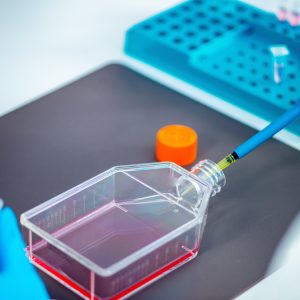
What is a power source for electrophoresis?
A power source for electrophoresis is a device that manages the current in a constant and direct way to the ...
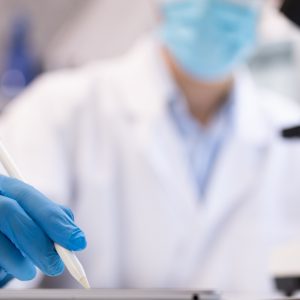
Power source for electrophoresis
Electrophoresis is one of the most widely used molecular biology techniques today, its purpose or objective ...
Electrophoresis models catalog on offer
-
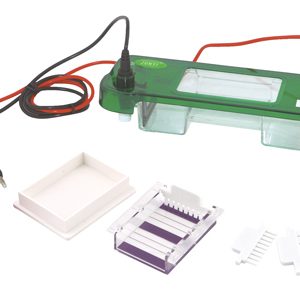
YR03415 Horizontal Electrophoresis Cell
-
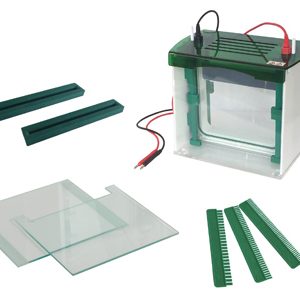
Vertical Gel Electrophoresis Cell YR03429
-
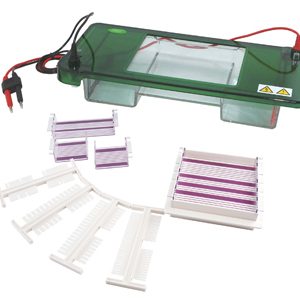
Horizontal Electrophoresis YR03418
-
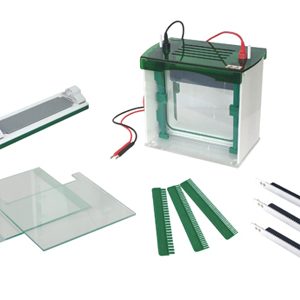
Rapid SSR Vertical Electrophoresis Tank YR03431
-
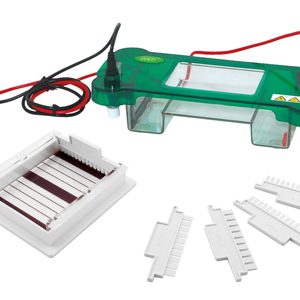
Horizontal Electrophoresis YR03416
-
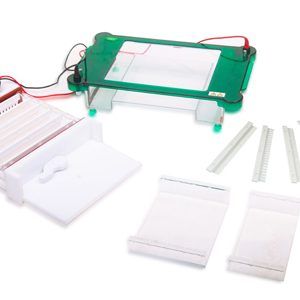
Horizontal Electrophoresis YR03420
-
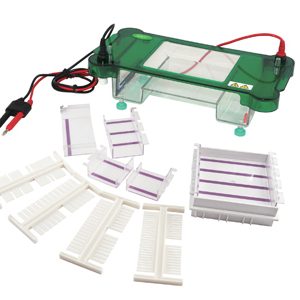
Horizontal Electrophoresis YR03417
-
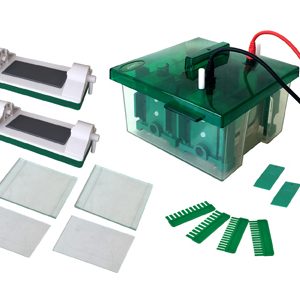
Mini-Protean Vertical Electrophoresis Cell YR03427
Guides to Becoming an Electrophoresis Expert
Parts and care of a power source for electrophoresis
A power source for electrophoresis is an electrical equipment that has the function of managing the current in a ...
Electrophoresis Equipment: steps for a gel run
Electrophoresis is a molecular biology technique where controlled electric current is used to separate biomolecules...
Horizontal and vertical electrophoresis
Gel electrophoresis is a laboratory technique used in genetics to separate mixtures containing DNA, RNA, and ...
Is a power supply important for an electrophoresis camera?
A power supply for electrophoresis, is a device whose purpose is to supply direct and constant current to an electrophoresis system, must have a voltage control to manage the supply of current entering the system. That is, these sources provide the electrical...

Frequently Asked Questions about Electrophoresis
How to know the prices of Electrophoresis?
To know the price of Electrophoresis we invite you to send us an email with your request through the contact form.
What are the delivery times of the Electrophoresis?
- If the equipment of your interest is in stock or if it must be manufactured.
- The type of freight you have chosen, this may be; air or sea.
How to make a purchase of Electrophoresis?
- By email: [email protected]
- By telephone: +33 (0) 1 78 95 87 02
- E-commerce: Via Kalstein's official website in your country.
How does the warranty work?
Can I request a quote online?
Of course, you can request a quote for the Kalstein team of your interest, directly from our official website. Once you have identified your preferred model, click HERE
